Eight Healing Herbs of Summer, How to Use Them, Health Benefits
By Bill Bradley, R.D.
Updated October 13, 2021
Herbs are an extremely important part of the Mediterranean Diet. In Greece, herbs grow wild pretty much everywhere. Hiking in the mountains, the smell of the wild herbs is almost intoxicating. When you see how many wild herbs there are, it’s not a surprise that the people from this area of the world have been using herbs in their cooking for thousands of years. Besides growing wild, people in the Mediterranean have potted herbs in their house and balconies. This makes it easy to quickly pick fresh healing herbs and incorporate them into your recipes. Depending on where you live you can easily grow fresh herbs used in Mediterranean cooking. Just simply picking some basil and mint, and adding them to a salad adds amazing freshness, flavor, and health benefits. Not only is it nice to have fresh herbs available during the warmer months, you can easily dry them to use in the winter. For example, at my house we dry mint and rosemary to use in a plethora of Mediterranean recipes during the winter. If you’re trying to eat the Mediterranean diet and you’ve never grown fresh herbs before, you’ll be amazed at how having some fresh herbs to pick will enhance your Mediterranean salads and cooking all year long.
If you are pregnant you should check to see which herbs are ok to eat in medicinal quantities.
Eight of the Most Popular Summer Herbs, What to Do with Them, and Their Possible Health Benefits
Basil
Basil is my favorite fresh summer herb. I make pesto as often as I can, and I never seem to get sick of it. My favorite way to make a quick pesto is by adding the basil, pine nuts, olive oil, garlic and cheese to a cutting board and just chopping everything until I have pesto. This means you can make it anywhere without the need of a food processor or mortar and pestle. Click here for my video on making pesto without a food processor.
Potential health benefits – Prevention of certain cancers, reduction in depression, reduction of age-related memory loss, anti-inflammatory. Basil may also protect against the risk of ulcers for those taking regular doses of aspirin.
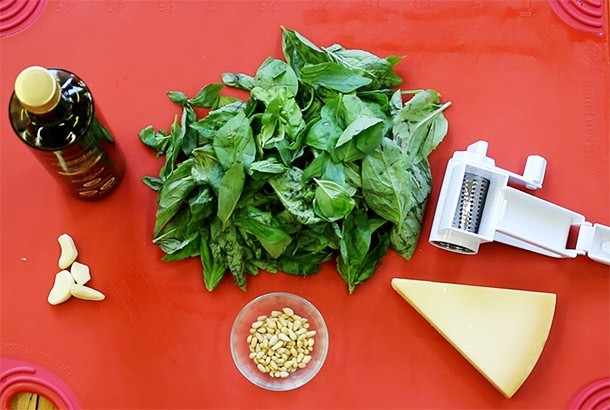
Mint
Mint is one of the easiest herbs to grow. Once it gets going you might find it hard to stop! I make a delicious iced yerba mate drink with yerba mate (a high caffeine tea), honey, lemon juice and lots of fresh mint. Not only does it wake me up in the morning, but it gives me fresh breath also.
Potential health benefits – May improve irritable bowel syndrome, reduce indigestion, increase brain function, decrease breastfeeding pain and may improve cold symptoms.
Thyme
Thyme is another relatively easy herb to grow. We have a large pot of it on our porch and I grab some when I am making chicken or potatoes. Sometimes, I use whole sprigs in chicken recipes and just remove the sprigs when cooking is complete. Thyme is used often in Mediterranean cooking and is especially good on meat and chicken, but also on vegetables. Here are some vegetarian recipes using thyme from CookieandKate.com.
Potential health benefits – May reduce blood pressure, protects against colon cancer, kills breast cancer cells, anti-microbial.
Parsley
Parsley is used often as a garnish but is amazing in many Mediterranean dishes. Tabouli is a parsley salad that will give you a medicinal dose of high-quality nutrients.
Potential Health Benefits – May prevent risk of cancer, decrease risk of diabetes, eye protection, improved bone health, antibacterial.
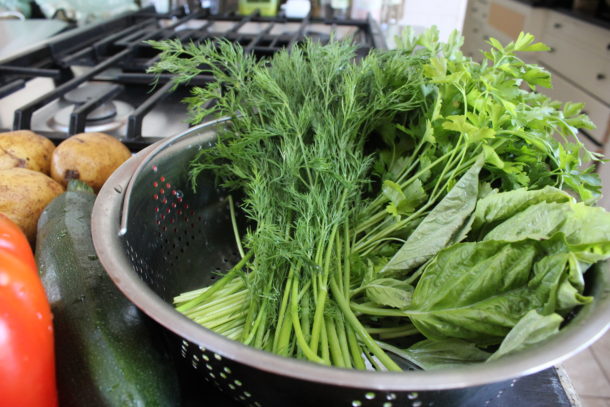
Dill
Dill is one of my favorite herbs as it offers a cooling flavor to whatever it is added to. The traditional Greek yogurt dip (Tzatziki) uses a lot of fresh dill. I also love it on potatoes, in beans and on chicken and fish. Right now we are making Lacto-fermented dill pickles that are out of this world delicious! Here is our recipe for loaded tzatziki.
Potential health benefits – Helps reduce depression, lowers cholesterol, reduces menstrual cramps, digestive aid, antimicrobial, reduces flatulence, can help with colds and flu.
Oregano
Oregano has been my go-to herb for years. It is great on everything from grilled bread to eggs to beans. Brittany Nickerson, author of The Herbalist’s Kitchen shared this Oregano Pesto recipe with me. It is super delicious and a few tablespoons is a medicinal amount to eat.
Oregano Pesto Recipe and Video.
Potential health benefits – Helpful for colds and flu and fever, anti-inflammatory, potentially anti-cancer herb that also helps digestion.
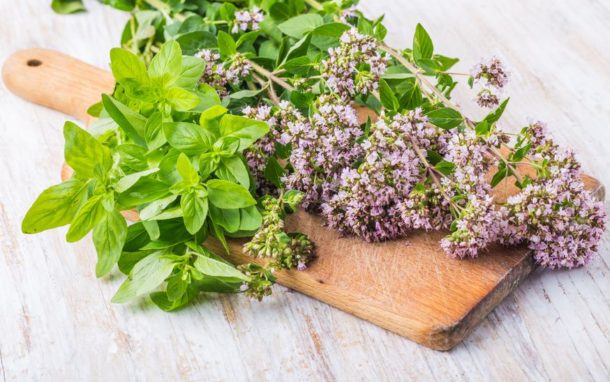
Rosemary
Rosemary is super easy to grow and its piney flavor goes a long way so you don’t have to use a lot of it in recipes. Rosemary adds so much to chicken, meat and potato dishes, but you can also use it in roasted cauliflower, mixed in with focaccia, as a topping for pizza or in a sauce for pasta.
Potential health benefits – anti-inflammatory, improves brain function, increases circulation, enhances memory, improves digestion.
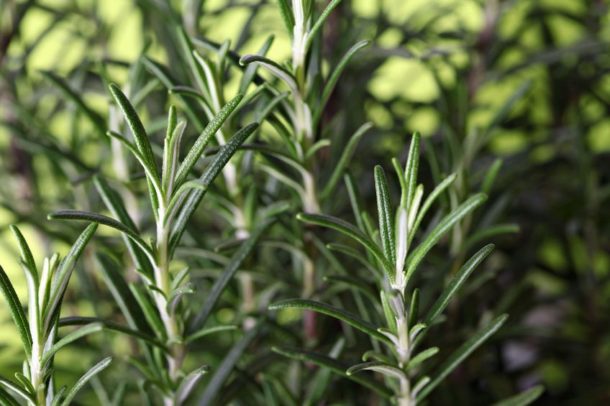
Sage
Sage grows rampant in the mountains of Crete. I find that most Americans only use sage once per year, on Thanksgiving. This is a shame because there are so many amazing recipes that feature sage. It’s a strong flavor so you don’t need much to add a lot of flavor to a dish. It’s easy to grow and drying it will go a long way. Imagine having your own dried sage for your next Thanksgiving dinner. These prosciutto-wrapped dates with sage are an easy appetizer to try out. For a delicious vegetarian and gluten-free burger that uses sage, try these Bean Burgers with Garlic and Sage.
Potential health benefits – May help ease symptoms of menopause, may lower blood sugar, increased memory and may reduce “LDL” or bad cholesterol.
I think that one of the reasons I feel so great in the summer is because of all the fresh herbs I am eating along with more fruits and vegetables. Try growing some of your own and let me know some of your favorite herb recipes!








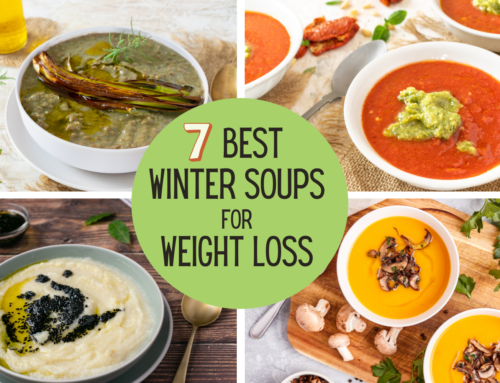
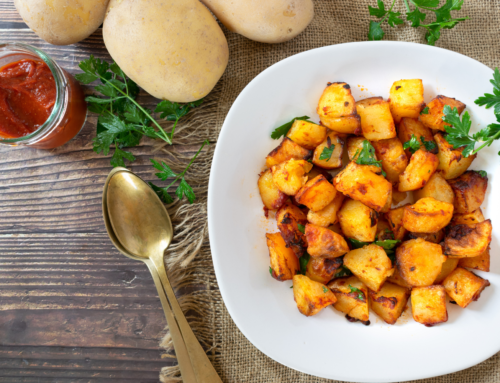
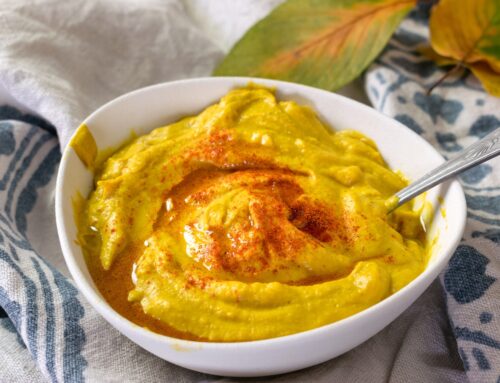
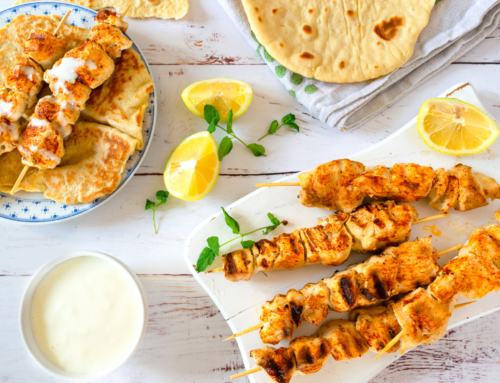
Winter LeBlanc says:
Winter LeBlanc says:
Bill Bradley, R.D. says: